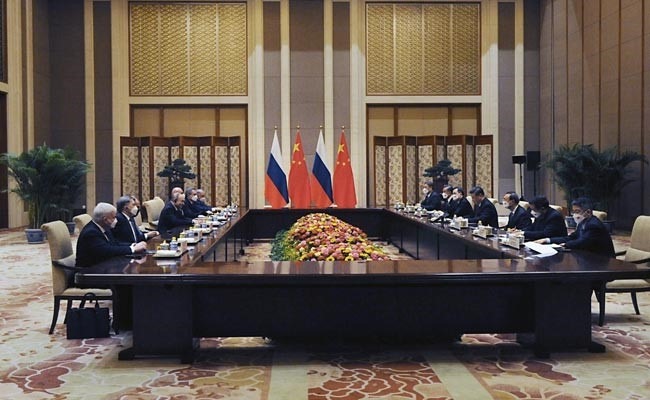| Translate This News In |
|---|
The timing of China and Russia’s “no limits” alliance before the opening of the Winter Olympics, Taiwan said on Saturday, was “contemptible,” adding that the Chinese government was dishonouring the Games’ spirit.
China and Russia backed one other in standoffs over Ukraine and Taiwan, promising to coordinate more against the West, during a meeting of their leaders hours before the Winter Olympics officially began.
Russia expressed its support for China’s claim that democratically administered Taiwan is an inalienable component of the country, as well as its opposition to any form of Taiwan independence.
China’s persistent erroneous claims that the island is a part of the People’s Republic of China, according to Taiwan’s Foreign Ministry, are identical to the country’s habit of spreading fake news.
“It not only raises the Taiwanese people’s contempt and hatred for China’s arrogance and bullying, but it also clearly reveals all world countries the sinister face of the Chinese Communist regime’s aggression, expansionism, and destruction of peace.”
The Chinese government has used the Russian meeting to engage in the extension of authoritarianism at a time when the world’s eyes are focused on the Winter Olympics and cheering on its athletes, according to the ministry.
“This is a disrespect to the peaceful spirit of the Olympic Rings, and the Taiwanese people will reject it, while democratic countries would look down on it.”
The US has also slammed the meeting, claiming that Chinese President Xi Jinping should have utilised the opportunity to press for a reduction in tensions in Ukraine.
The Olympics, which Taiwan has sent a small team of four athletes to compete in, are taking place at a time when tensions between Taipei and Beijing are at an all-time high, with China regularly dispatching military ships and planes close to the island.
Despite the fact that Russia and Taiwan are good friends, both countries retain modest de facto embassies in each other’s cities.
Former Taiwan President Chiang Ching-kuo spoke Russian and was married to a Russian woman he met while working in the Soviet Union in the 1930s.


















